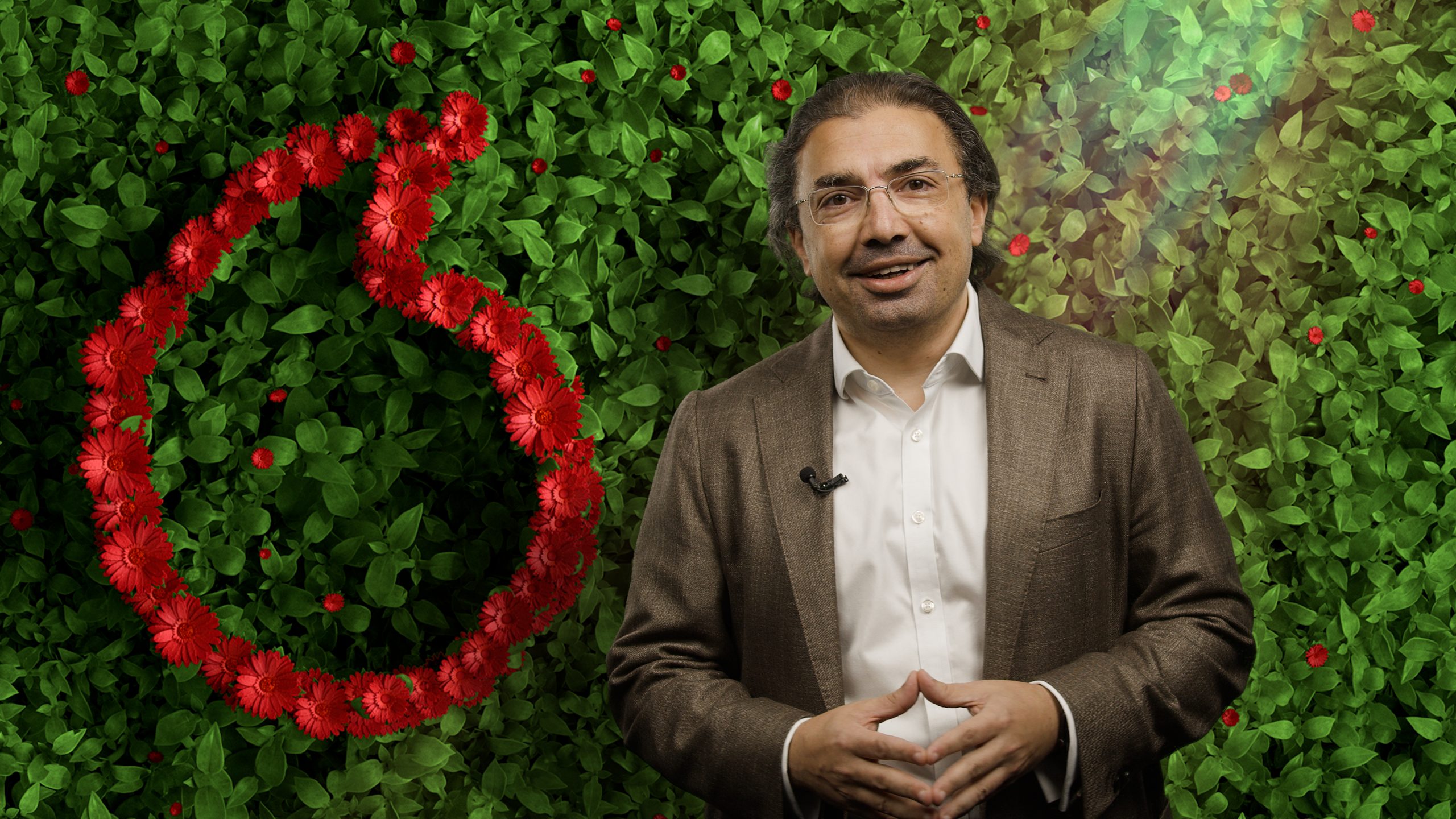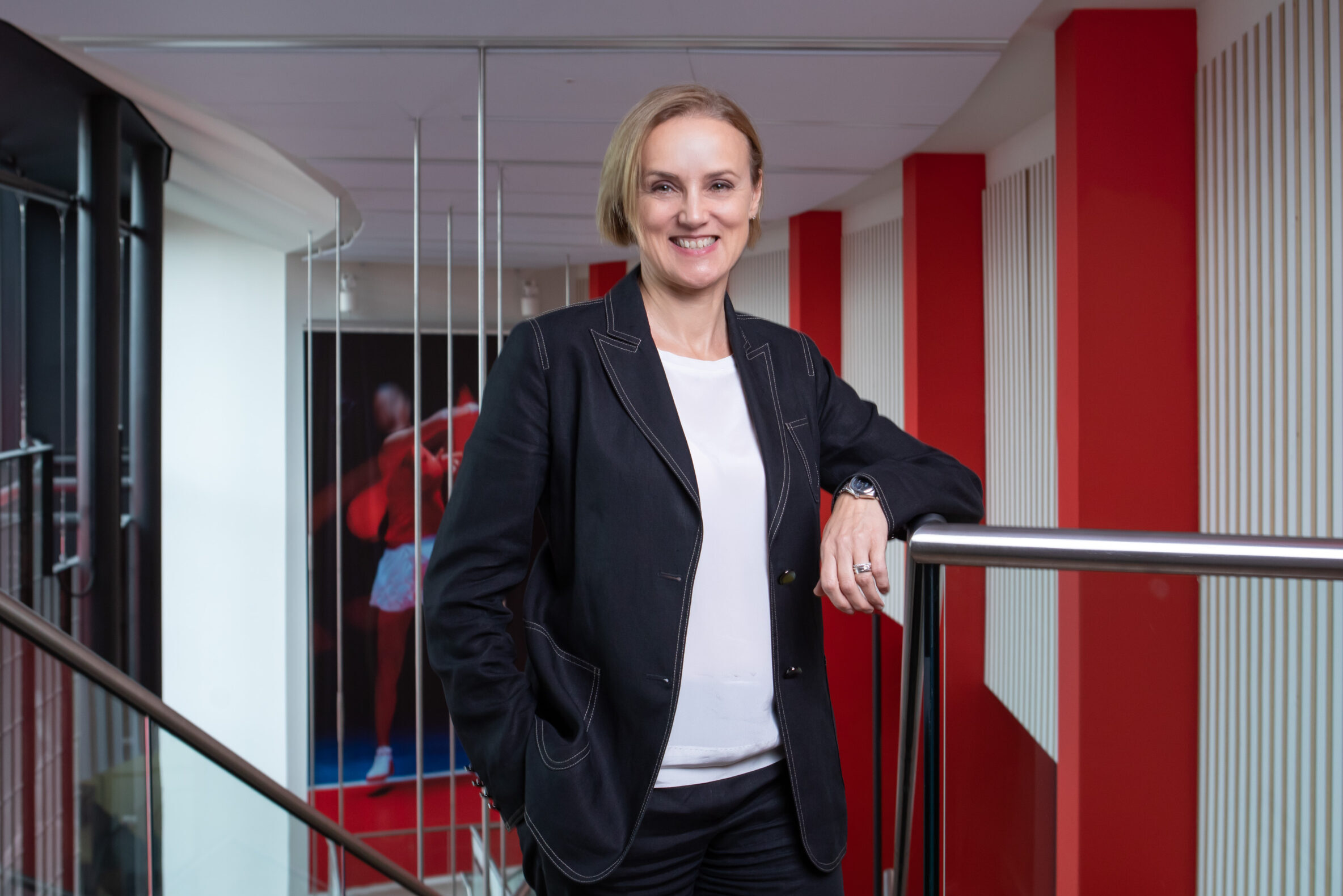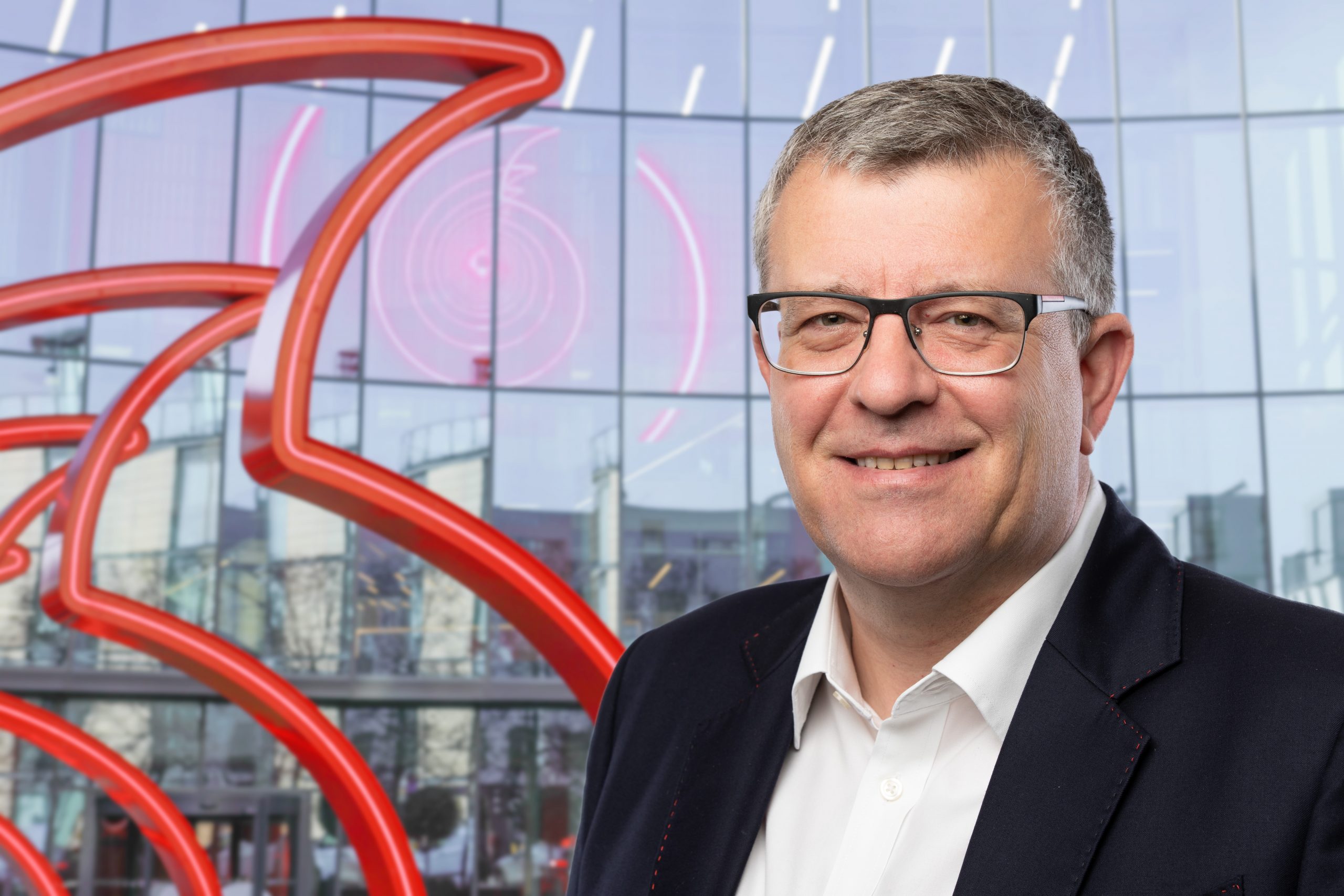As Nick Jeffery comes to the end of a five-year tenure as chief executive of Vodafone UK, he reflects on the company’s achievements over that period, and on his 16-year career at Vodafone.
The word Nick most often uses in conversation to sum up his feelings about Vodafone is “pride”.
“I feel proudest about the company getting its mojo back frankly!” he says.
Financially and culturally, the company is on the up, he says. And the numbers speak for themselves.
Since Nick took the reins in 2016, Vodafone UK’s revenue is back to growth, EBITDA [Earnings Before Interest, Taxes, Depreciation and Amortisation] has enjoyed double-digit growth over the last two years, and cash flow has improved by more than 10 times.
“We’ve been beating the competition consistently now for seven quarters, which is phenomenal, and we’ve really returned to our roots as a challenger brand in the UK,” says Nick.
“We’re growing market share; we’re growing in every segment of every business. Our NPS [Net Promoter Scores – a measure of customer satisfaction] are the highest they’ve been since we started measuring NPS.”
He is also proud of the fact that the company is consistently voted a great place to work, whether you’re a woman, from the LGBT+ community, or from an ethnic minority background.
“We’re winning awards left, right and centre!” he says proudly.
So how did the company achieve this dramatic shift in fortunes?
The turnaround strategy
“We relentlessly focused on the few things that made the most difference to the exclusion of all else,” he explains.
These priorities included putting the customer first, with the launch of new eye-catching SIM-only, Pay As You Go, and Unlimited data plans, for example, and a brand refresh to appeal to a younger audience. The launch of youth brand VOXI also signalled an exciting change of direction, says Nick.

“I really believe that if you listen carefully to your customers they’ll tell you exactly how to be successful,” he says.
“They’re clear on what they will spend their money on and what they won’t. That sounds obvious, but a lot of companies don’t do that.”
Digitalising, simplifying and automating business processes – the launch of the TOBi chatbot, for example – was another priority, as were investing heavily in the network; ruthlessly cutting costs; and changing the culture to one that was more creative and agile.
“Great strategy is always very simple,” argues Nick, and this simplicity was key to its success, because it was easy for everyone to understand and get behind, he says.
Creating the right culture
Nick reflects that staff morale was low when he arrived and that people had forgotten how to celebrate. An early instruction was to go out and buy some balloons!
And starting ListenLive, whereby board members spoke directly to employees from across the entire business and answered questions in return, created a sense of connection throughout the company.
“We wanted to ensure the strategy was being fed right through to the front line without any filtering or dilution,” he explains.
This meant telling it how it is, directly and honestly, says Nick, who professes a “strong dislike” of bureaucracy and hierarchy.
He acknowledges that the company couldn’t have achieved such a revival without the help of an “absolutely amazing” senior leadership team which adopted a “high trust, high challenge” culture.
“Every single one of them is a star performer and they’re great fun to work with,” he says.
And he is keen to heap praise on frontline Vodafone colleagues, whether care centre workers, retail staff, or network engineers out in the field, who’ve shown “great spirit and ‘can-do’ attitude”, particularly during the pandemic.
“I’ve been incredibly proud of the way we moved the company to working from home in just a couple of weeks, and how our colleagues responded to that challenge. Despite the pandemic we’ve performed extremely well.”
Helping NHS and care home workers, vulnerable people, and unemployed job seekers with free and subsidised data as part of the company’s Keeping the UK Connected initiative demonstrated just how much the company had rediscovered its “sense of purpose”, says Nick.
Rediscovering innovation
Showcasing the first holographic phone call in 2018, then launching 5G the following year with F1 World Champion Lewis Hamilton were particular highlights, says Nick, because they “were moments where you really felt the company coming together and finding its voice.”
This was the company that made the first ever UK mobile phone call and sent the first text message demonstrating that it was at the forefront of innovation once more.

With an entrepreneurial background, Nick describes himself as someone prepared to take “calculated business risks”. He started his own business, Microfone, in 2001; was instrumental in setting up Vodafone Group Enterprise, the multinational enterprise, IoT, cloud and security business in 2006; and oversaw the takeover and integration of his old company Cable & Wireless in 2012.
He was keen to infuse Vodafone UK with this entrepreneurial spirit and thirst for innovation.
It was a spirit he displayed very early on in his career. In the early Nineties, after winning a place on Mercury Communications’ graduate trainee scheme – for want, he admits, of anything better to do – Nick worked in the sponsorship team and ended up reviving a rejected idea to co-create the Mercury Music Prize.
“That’s what convinced me that in this industry you can achieve incredible things if you have the right ideas and can package them in the right way,” he says.
‘More work to be done’
But it hasn’t all been plain sailing, and challenges remain. There is still some way to go to bring customer service up to the level it should be at, Nick admits, although he quickly points out just how much it has improved since 2016.
“Back then I used to get 300 to 400 customers writing to me personally every single day of the week,” he recalls with a grimace.
“It’s so much better now. We’ve worked really hard to put the customer first in everything we do. But there is still more work to be done.”
The new CEO will have to keep the commercial momentum going, accelerate digital transformation, and work out how to achieve scale in a converging market, Nick believes.
“We’ve got back to being a good company, now we need to become a great one – a great British entrepreneurial powerhouse that is agile and fun.”
Parting ways
But if everything is going so well at Vodafone UK, many may be asking “why leave”?
“That’s a good question,” says Nick. “It’s always difficult to leave when things are going well, but it’s generally the right thing to do.
“We all need to keep challenging ourselves and the only other job that would have done that for me would have been [Group CEO] Nick Read’s, and he’s doing a great job and will hopefully be here for years to come.”
In his defence, Nick also points out that he has been at Vodafone for 16 years: “That’s nearly half the company’s entire life!”
His new berth, Frontier Communications, a US broadband company, has “a lot of the same attributes” as Vodafone UK had in 2016, he says. In other words, it’s another turnaround challenge he’s ready to get his teeth stuck into.
There won’t be much free time between jobs to thrash out ZZ Top or AC/DC tunes on his guitar, as he is fond of doing, or playing “Scandi house” music on his beloved keyboards.
But there is time enough to reflect that he leaves a company that is in far better shape now than when he arrived.
And there aren’t many modern CEOs who can say that.
Follow @VodafoneUKNews on Twitter.
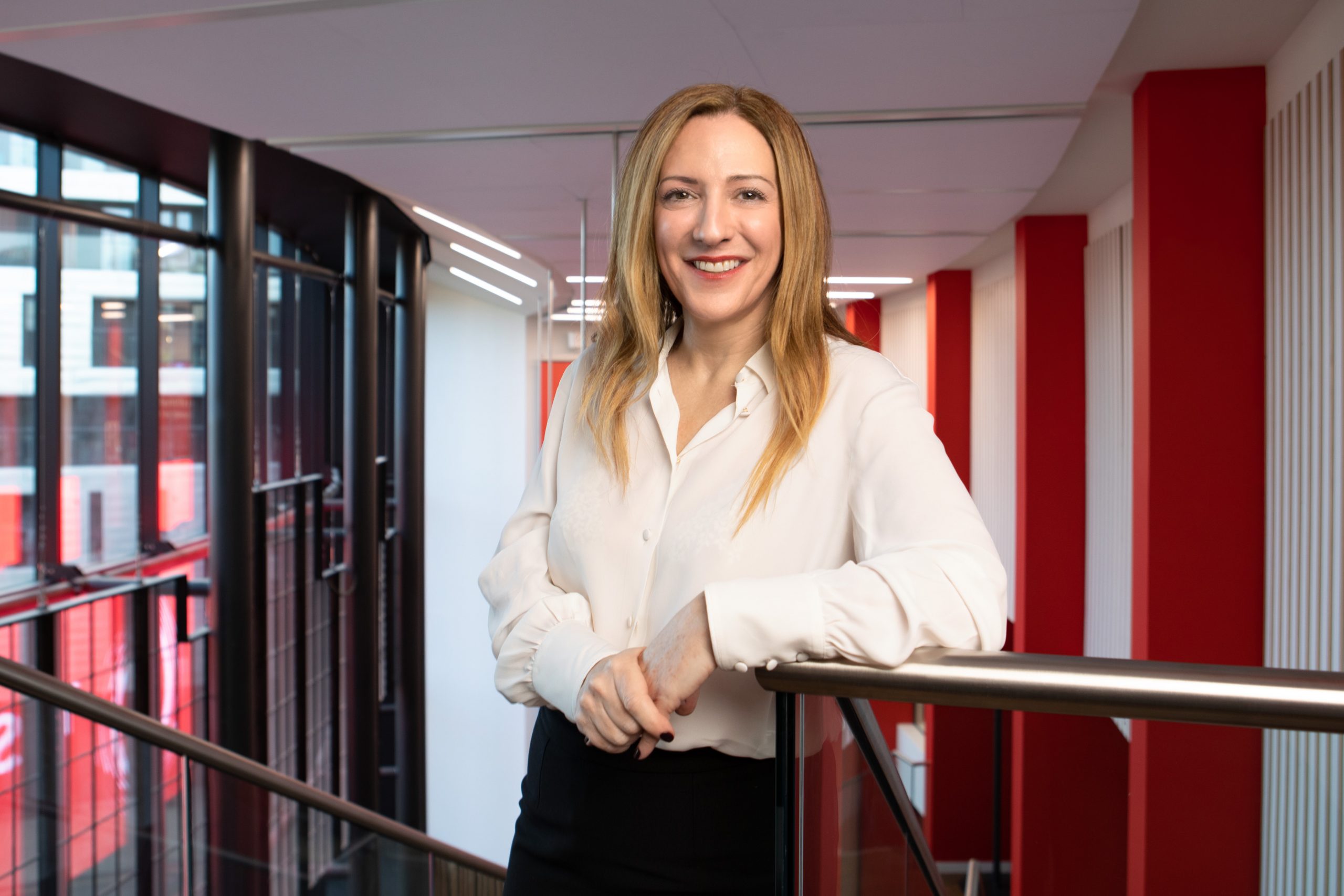
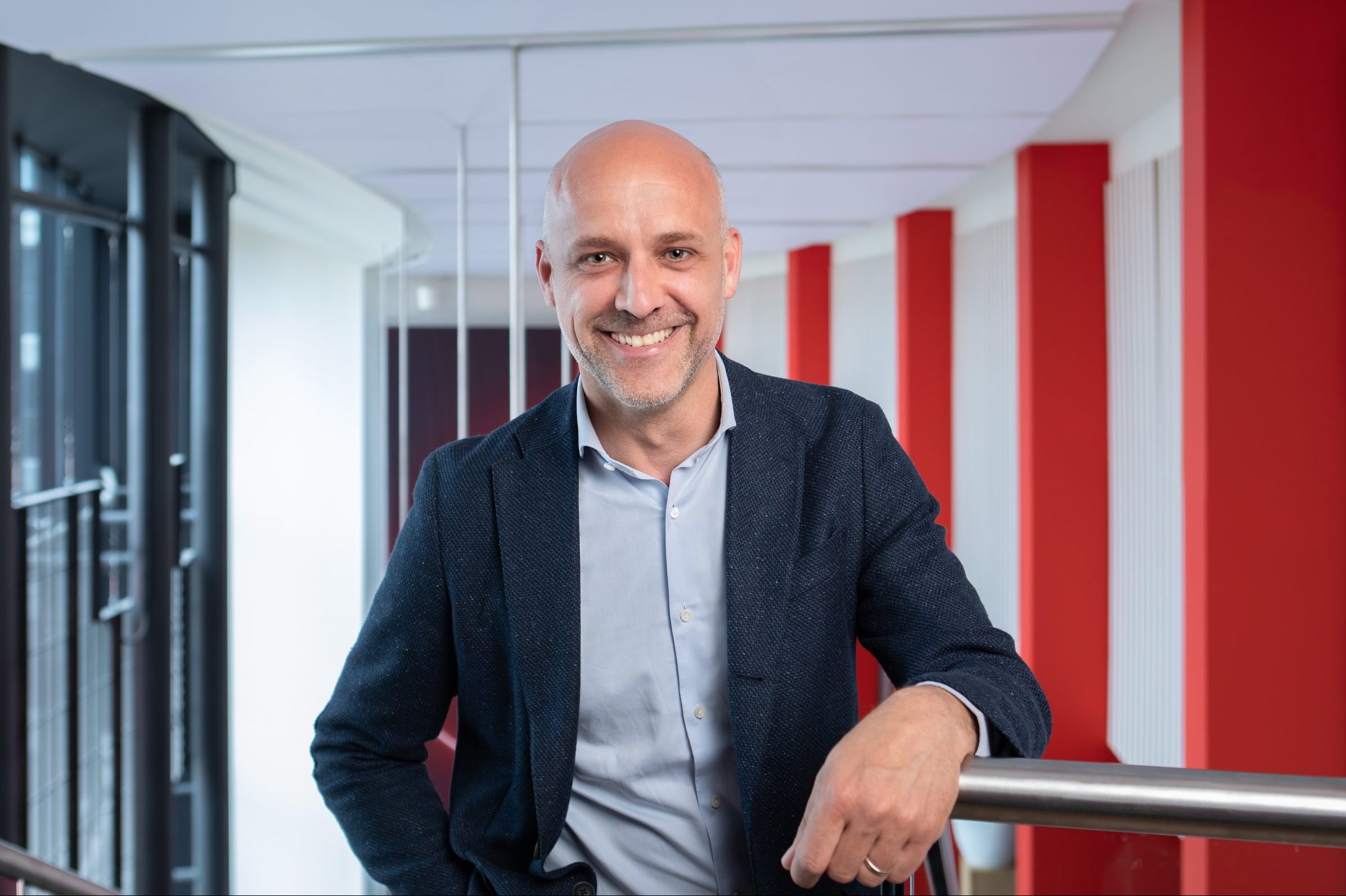
![Nicki-Lead_image[OPTIMISED]](https://www.vodafone.co.uk/newscentre/app/uploads/2023/10/Nicki-Lead_imageOPTIMISED.jpg)
